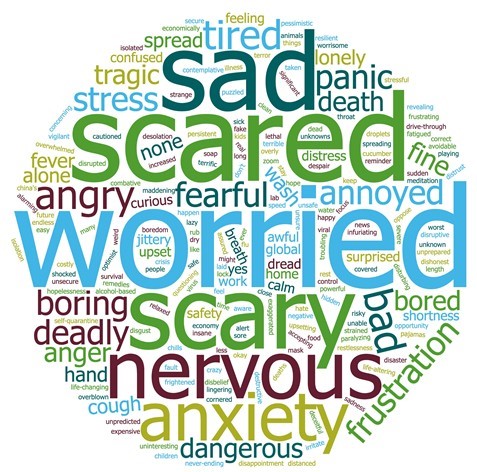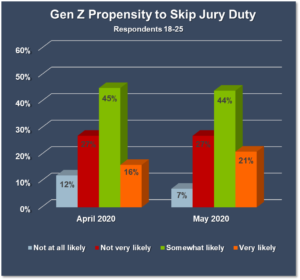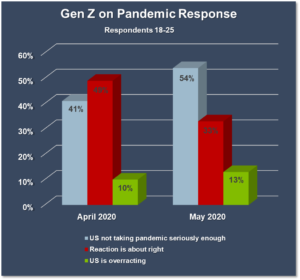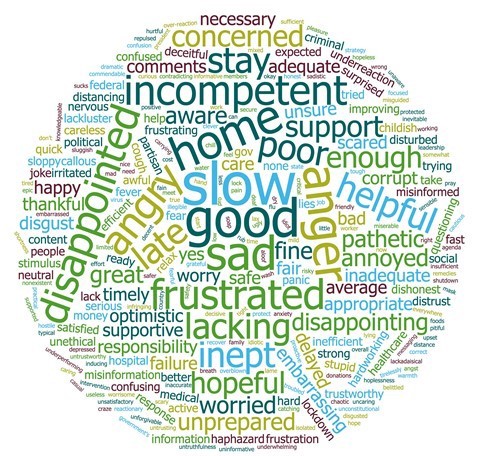The question we’ve been asked the most by clients the past few months is:…

Who Exactly Will Show Up For Jury Duty?
Juries and jury trials may end up dramatically affected by who is willing to show up for jury duty, and who – for either health or economic reasons – will choose to ignore a summons and stay home when the stay-at-home orders are lifted and courts re-open. If the people who show up are systematically different than those who stay home, the com- position the jury pool could shift in meaningful ways. Litigants who track these changes and adjust accordingly can put themselves at a considerable advantage when trials resume.
These trends, however, are moving targets, as different age groups, educational levels, and income levels have shifting opinions on COVID-19, its severity, and the appropriate response. We have seen some of these shifts – and their possible effects on a jury pool – even between the first two surveys we are using to track COVID-19 data as it relates to litigation. In our first survey, respondents between 18 and 25 were among the most likely to say they’d be willing to take the risks and show up for jury duty. However, a few weeks later, the difference between young potential jurors and others below 55 had evaporated; those between 18 and 25, so called Gen Z, appear now to be just as likely to say they would consider skipping it. You can see the difference in the first chart below. The group saying they were “not at all likely” to skip jury duty has shrunk considerably, with a corresponding rise in those saying they are “very likely” to skip it.


We have high confidence that this shift is real, and not just an artifact of data collection. Furthermore, we have good evidence as to why this has changed. Unique among age groups, Gen Z’s opinion on the seriousness of the pandemic notably changed between our surveys, as demonstrated in the second chart below. Young people were far more likely in our more recent survey to say that the U.S. is not taking the pandemic seriously enough, which is likely driving their increased propensity to skip jury duty.
This may seem like a small point, but the impacts are considerable. Our data shows that this change in Gen Z perspective is large enough to significantly change the average opinion on the entire jury pool toward damages, corporations, and the merits of lawsuits. The shape of an average venire is shifting frequently and dramatically, and the risks and rewards of trial will shift accordingly. Those who take these considerations into account will find they have an edge when trials resume.
We will continue to gather and analyze data in the weeks and months ahead, and publish our findings.
For more information about this survey, or to speak with a consultant, please call us at 415-781-5879, or email us at clientservices@trialbehavior.com.



